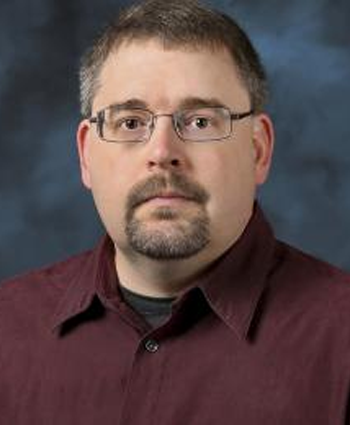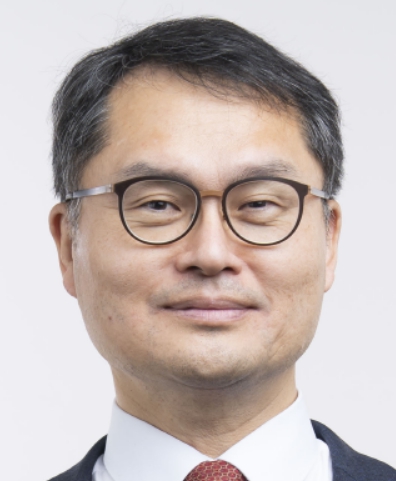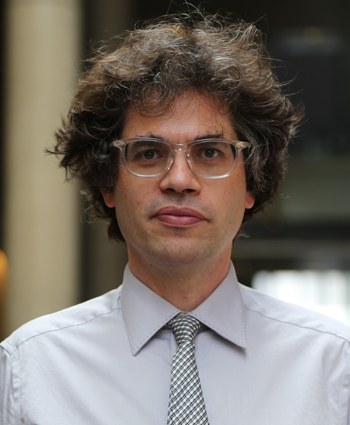2024 Keynote Speakers
Herrick Conferences Keynote Speaker
|
|
John Sipple |
| Tech Lead and Staff Software Engineer of Google’s Core Enterprise Machine Learning team |
Title of talk: AI for Sustainability -- Deploying Intelligent Diagnostics and Optimal Control to Reduce the Climate Burden of Google Office Buildings
As Tech Lead and Staff Software Engineer of Google’s Core Enterprise Machine Learning team, John Sipple is on a mission to deploy novel fault detection and diagnostics and practical smart control to large-scale industrial problems. John leads multiple development efforts that combine multidimensional anomaly detection with model explainability. He also leads a research effort to deploy reinforcement learning to make commercial office buildings more efficient and environmentally sustainable. John has also worked on dialog summarization models for Google chat. Before joining Google, John developed and applied algorithms, statistical analysis, and machine learning solutions to cybersecurity, precision agriculture, counterfeit detection, and missile defense. As an adjunct professor at the George Washington University, John teaches graduate and undergraduate courses in Machine Learning
Google’s goal is to lead the transition to a more sustainable future through information and innovation, and we’re pursuing net-zero emissions across our operations and value chain by 2030. This is supported by our ambitious clean energy goal to operate our data centers and office campuses on 24/7 carbon-free energy, such as solar and wind. With the increase in sensors and controllable parameters on physical devices, we also believe next-generation monitoring and control are key supporting technologies to achieving our sustainability goals in the near term with minimal impact to existing building infrastructure. Intelligent Diagnostics detects changes in the telemetry stream, extracts symptoms, and proposes root-cause analysis and treatments by combining Anomaly Detection, Explainable AI, and causal reasoning from language models, such as Gemini. Our novel combination of AI technologies assists the technician in rapid detection, informed evaluation, prioritization, and treatment selection, and reduce inefficiencies and emission. Optimal Control can be used to adapt building climate controls to the occupants’ patterns and preferences while achieving significant energy efficiency gains and greenhouse gas emission reductions. However, there are a number of challenges we encountered and we’ve developed a number of solutions associated with training an agent in a virtual environment and deploying a trained control policy to physical office buildings. At Google, we are working to build a “living” office building environment that adapts to its occupants and allows them to shape the building’s environmental load and energy curve. Intelligent Diagnostics and Optimal Control are just two directions for applying AI to intelligent building operations, but they should inspire other moonshot ideas of leveraging new technologies to achieve a significant positive climate impact.
Tuesday Luncheon Keynote
 |
Michael Sealy |
| Associate Professor, Mechanical Engineering, Purdue University |
Title of talk: Feeding the Future through Convergent Manufacturing
Refrigeration & Air Conditioning Conference Plenary Panel
Topic: Electrification of the Heating Industry
| MODERATOR | PANELIST | PANELIST | PANELIST |
 |
 |
 |
 |
Dr. Brian Fricke |
Dr. Andy Pearson |
Dr. Min Soo KIM |
Dr. Jason Woods |
| Group Leader, Building Equipment Research, Oak Ridge National Laboratory |
Group Managing Director at Star Refrigeration Ltd.
|
Professor, Department of Mechanical Engineering, Seoul National University.
|
Senior Research Engineer, National Renewable Energy Laboratory’s Building Energy Science Group
|
Dr. Brian Fricke is the Group Leader for Building Equipment Research at Oak Ridge National Laboratory (ORNL). He oversees research and development initiatives aimed at advancing building equipment technologies, enhancing energy efficiency, and promoting sustainability. With a distinguished career dedicated to innovation in HVAC systems, refrigeration, and building energy performance, Dr. Fricke’s contributions significantly impact the development of cutting-edge HVAC&R solutions for energy conservation and environmental stewardship. Dr. Fricke is an ASHRAE Fellow and served as the USNT chair and U.S. delegate to IIR Management Committee. |
Dr. Pearson is a Chartered Engineer and has worked in the industrial refrigeration sector since 1986. He is particularly interested in improving safety, efficiency and reliability of refrigerating systems and he also enjoys researching the history of engineering development. |
Dr. Min Soo KIM received his Ph.D. in mechanical engineering from Seoul National University in 1991, and he joined the faculty in 1994. His expertise is in thermal engineering including performance enhancement of refrigeration and heat pump systems, thermal management of next generation vehicles, and balance of plant of fuel cell systems. He has more than 270 journal papers and more than 510 conference papers together with about 50 patents. He is a member of ASME, ASHRAE, IIR, KSME, and SAREK. He got the Outstanding Academic Award from the Society of Air-conditioning and Refrigerating Engineers of Korea (SAREK) and from the Korean Society of Mechanical Engineers (KSME). He received Presidential Citation by the Ministry of Public Administration and Security. Recently, he received the Peter Ritter von Rittinger International Heat Pump Award from the International Energy Agency in 2023. |
Dr. Jason Woods is a senior researcher in NREL’s Advanced Building Equipment Research Group. His expertise is in heat and mass transfer and phase change processes, with applications to heat pumps, thermal energy storage, dehumidification, and membrane-based HVAC processes. He leads many projects at NREL that connect system and building modeling with HVAC technology development and deployment. His research has led to 45 peer-revied publications and 11 issued patents. His current focus is on decarbonizing buildings through electric heat pumps that align electricity use with renewable generation using energy storage. He received his BS from Purdue University and his PhD from the University of Colorado, both in mechanical engineering. |
High Performance Buildings Conference Plenary
 |
Dr. Jeffrey Siegel |
|
Professor, Department of Civil & Mineral Engineering, University of Toronto
|
Title of talk: Advances in Indoor Air Quality and Filtration Research for Healthy and Sustainable Buildings
Jeffrey Siegel, Ph.D., is Professor of Civil and Mineral Engineering at the University of Toronto and is a Bahen/Tanenbaum Chair in Civil Engineering and a member of the Hub for Advancing Buildings. He holds joint appointments at the Dalla Lana School of Public Health and the Department of Physical & Environmental Sciences. He has an M.S. and Ph.D. in Mechanical Engineering from the University of California, Berkeley as well as a B.Sc. from Swarthmore College. He is internationally recognized for his work on indoor air quality generally and air cleaning specifically and is a fellow of ASHRAE and a member of the Academy of Fellows of the International Society for Indoor Air and Climate (ISIAQ). His research interests include healthy and sustainable buildings, filtration and air cleaning, ventilation and indoor air quality in residential and commercial buildings, control of indoor particulate matter, and the impact of building systems on indoor microbiology and chemistry. He has published over 100 peer-reviewed journal articles on indoor air quality and related subjects and has been active in disseminating information about filtration and ventilation solutions for COVID-19.
Compressor Conference Plenary
 |
DR. BACHIR BELLA |
|
Director Sustainability and Product Safety
Copeland Europe (based in Germany)
|
Title of talk: Safe Use of Hydrocarbons in HVAC&R Applications
Conference Coordinator
Ray W. Herrick Laboratories
177 S. Russell Street
West Lafayette, IN 47907-2099
barret71@purdue.edu
